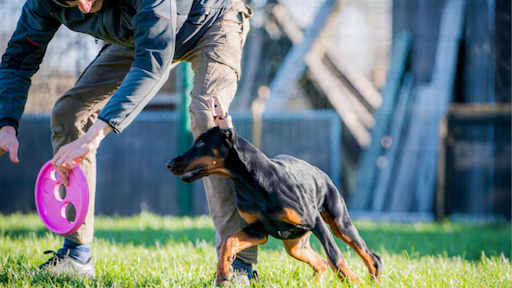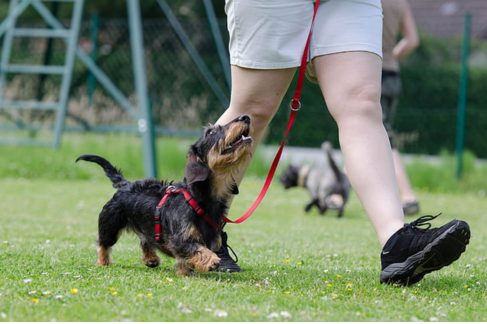Contents
In the world of pet care, one popular option that many dog owners consider is dog board-and-train programs. These programs promise to help improve a dog’s behaviour, obedience, and social skills, making it a more enjoyable companion. But how exactly does dog board-and-train work, and can it genuinely enhance your pet’s ability to interact with others, both human and canine?
Let’s dive into this topic to see what these programs can offer.
Understanding Dog Board and Train
Before exploring the social skills aspect, it’s essential to understand what dogboarding and training entail. Typically, these programs involve leaving your dog at a specialized facility, where it is cared for by trained professionals. During their stay, dogs participate in structured training sessions that focus on various skills and behaviours.
The environment of a board-and-train program is designed to be enriching and stimulating, providing dogs with opportunities to learn in a controlled setting. Trainers use positive reinforcement techniques to encourage desired behaviours while reducing unwanted ones.
The Role of Socialization in Dog Training
Socialization is crucial for dogs, especially during their formative months. It helps them feel comfortable around other dogs, people, and different environments. A well-socialized dog is generally more confident and less anxious. However, not all dogs are naturally good at socializing. Some may be timid, aggressive, or simply unsure of how to behave around other dogs and strangers.
This is where a dog board and train program can make a difference. These programs often include socialization as part of their curriculum. Dogs get to interact with other trained dogs, exposing them to various behaviors and reactions. This experience can help them learn appropriate ways to interact, whether it’s playing, greeting, or simply coexisting peacefully.
How Dog Board and Train Improves Social Skills
Structured Interactions
During a dog board and train program, your pet will have opportunities to engage in structured play and socialization sessions. Trainers closely monitor these interactions to ensure they are positive and safe. This supervision helps dogs learn how to read body language and respond appropriately to other dogs’ cues.
Exposure to Different Environments
Many board and train facilities offer outings to different locations, such as parks or pet-friendly stores. These outings allow dogs to experience new sights, sounds and smells while practicing their social skills. Exposure to different environments can boost a dog’s confidence, helping them feel more at ease in various settings.
Focused Training Techniques
Trainers in dog boarding and training programs employ specific techniques to address socialization issues. For example, if a dog tends to bark or act aggressively towards other dogs, trainers can work with them to redirect these behaviours and encourage more positive interactions. This focused approach can lead to quicker improvements in social skills compared to casual training at home.
Peer Learning
Dogs often learn by watching and mimicking others. Your dog can observe how other well-behaved dogs interact in a group training setting. This peer learning can inspire your dog to adopt similar behaviours, making socialization feel more natural.
Building Confidence
One of the most significant benefits of dog boarding and training is the boost in confidence it can provide. As dogs navigate various social situations and receive positive feedback from trainers, they become more confident. A confident dog is more likely to approach new experiences with curiosity rather than fear.
What to Expect After the Program
After your dog completes a board-and-train program, it’s essential to continue the training at home. The skills it’s learned need reinforcement through regular practice and positive experiences. Engaging in playdates with other dogs, attending dog parks, or even signing up for follow-up classes can help maintain and further develop your dog’s social skills.
Additionally, owners should practice the commands and techniques their dogs learned during the program. This ongoing involvement reinforces the bond between owner and pet, making social interactions more manageable.
Conclusion
So, can dog boarding and training improve your pet’s social skills? Absolutely! These programs offer structured environments where dogs can learn essential socialization skills under the guidance of experienced trainers. By participating in a dog board and training program, your furry friend can develop the confidence and skills needed to navigate social situations more effectively.
If you’re looking for a reputable dog board and training option, consider visiting K9 Academy Training. They provide a comprehensive board and training program to help dogs become well-behaved, socially adept companions. With their expert trainers and engaging environment, your dog can thrive and enjoy a happier, more confident life.




